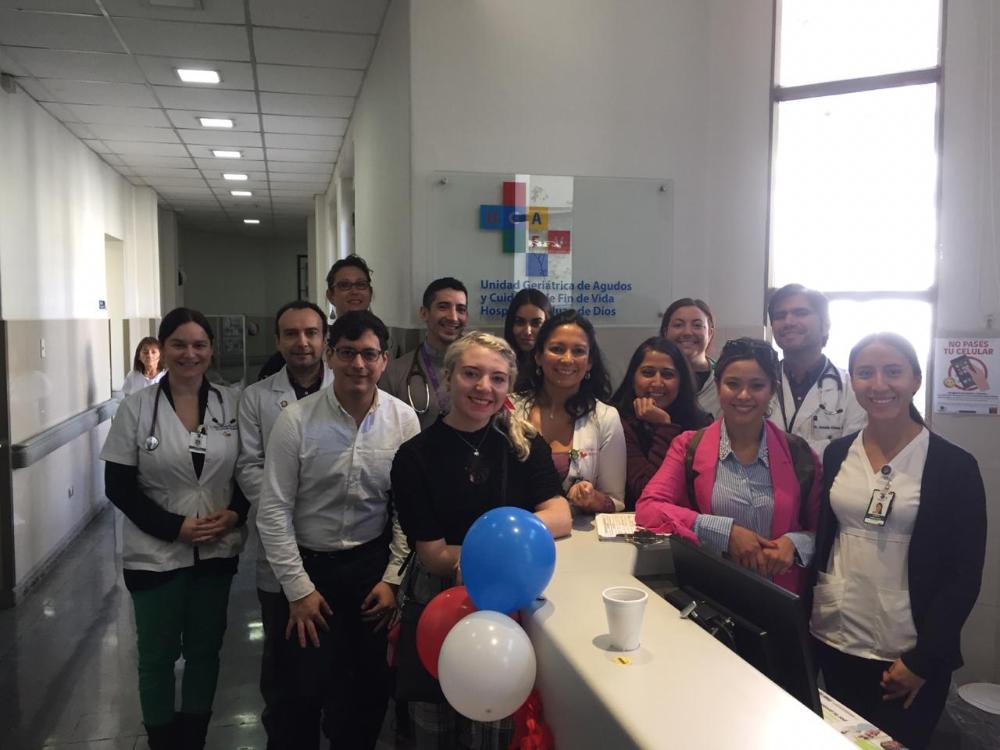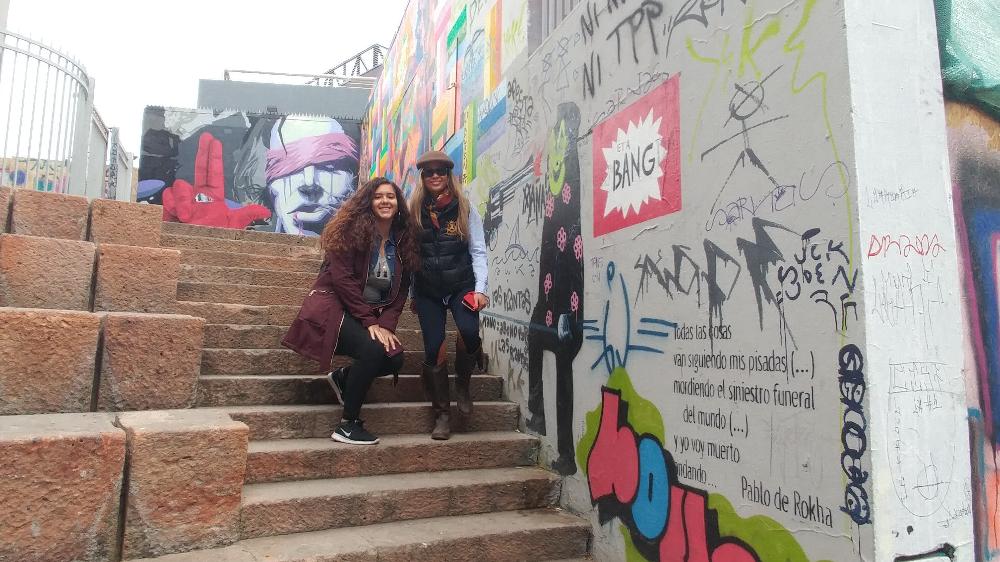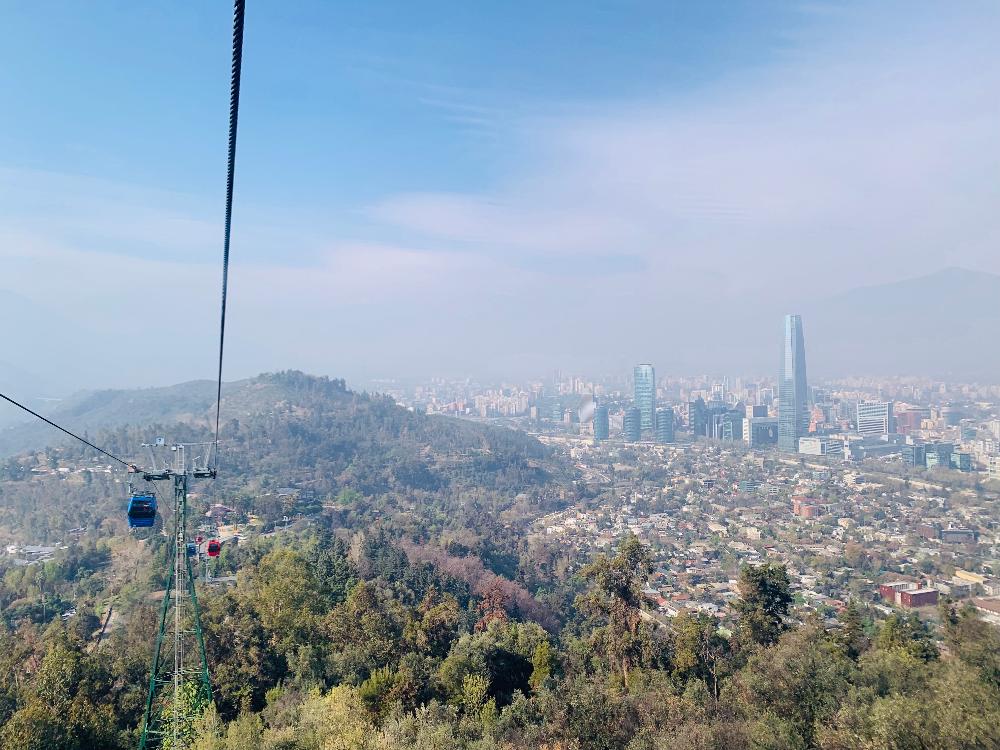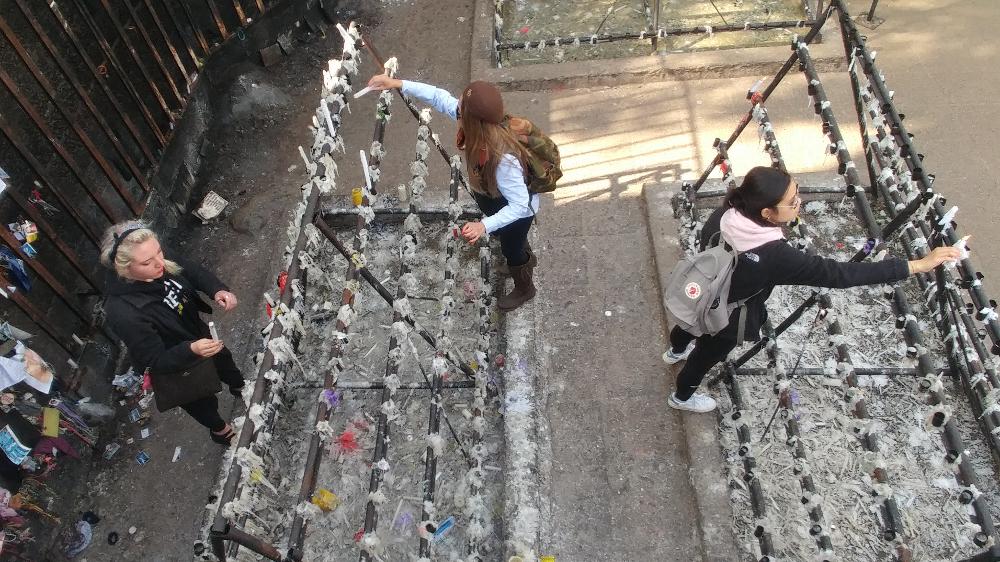Winter Break in Chile:
Global Aging Santiago
Global Aging: Santiago, Chile will bring both undergraduate and graduate students to an urban metropolis nestled within the Andes mountain range. Chile, South America’s 7
th most populous country, is experiencing population aging faster than any other country in Latin America. More than 30% of the population is projected to be over 60 by 2050. This Intensive Course Abroad will introduce students to aging as a global phenomenon, exploring what Chile’s rapid population aging means for families, health professionals, urban planners, and the government as well as parallels with our own country’s aging population. Students will visit community care facilities and talk with Chilean professionals, students and faculty members about how we can make our countries as age-friendly as they can be. Students of all disciplines are encouraged to attend this trip.
By participating in this program, students will be able to: 
- Define important concepts in global aging and the terms used to describe the demographic transition and the epidemiological transition.
- Describe how the trends in aging are different throughout the world.
- Describe key events and individuals that have shaped the social and historical context of the country of interest.
- Recognize ethnocentrism and reflect on your own biases before traveling to the host county.
- Observe key interventions designed to address important aging issues.
- Reflect on your observations and report on a particular issue linked to aging in Chile.
Credit/Registration: Students will be registered for HSAD 366 / HSAD T580 3 credits Global Aging as part of their winter term course load. Undergraduate students must leave room in their credit load when registering or will be billed for credits exceeding the credit maximum. Graduate students will be billed Drexel credits at their standard rate.
Instructor: Jesse Ballenger, Associate Teaching Professor, Health Administration, College of Nursing & Health Professions
Pre-Travel Online Learning Modules required for all participants. Date and time will be provided post-acceptance.
Arrival Date: December 14th, 2025 (Depart US on Dec. 13th)
Departure Date: December 21st, 2025 (Return US on Dec. 22nd)
Students are responsible for independent travel before or after program dates.
Itinerary Overview
Fall Term: Hybrid Orientation that students can attend in-person or via zoom.
This meeting will orient students to the course blackboard shell and requirements of the ICA. We will also present crucial information from Drexel Global about the program, focusing on communications and practical contingency planning as well as information specific to the to travel to Chile. All pre-travel reading must be completed by this time.
General ICA Structure
Each day of the trip will feature an excursion to a location that will allow us to explore a different theme related to aging through site visits and discussions with Chileans involved in many aspects of work with older adults. Most of these excursions will take 3-5 hours. Following these excursions, there will be an hour or two of structured reflection and open group discussion, and some unstructured time for students to relax and experience the beauty and conviviality of Chile.
NOTE – The itinerary below is subject to change as we work with our Chilean hosts.
Sunday, December 14: Arrival Orientation & Welcome Dinner
Group Welcome Dinner: This first formal meeting of the ICA group will be a welcome orientation followed by a group dinner at or in close proximity to the hotel.
Monday, December 15: Student Perspectives on Aging in Chile and the United States
Excursion: San Sebastián University for a discussion between Drexel and Chilean students and faculty. on various aspects of aging and student life.
Tuesday, December 16: Health Care
Excursion 1 (morning): Geriatric Unit and Hospice of the Hospital San Juan de Dios. This visit will involve a tour and observation of the unit and a discussion with members of the medical and nursing staff. Time permitting, we will also do some sightseeing in the area around the hospital in central Santiago, including Parque Quinta Normal and a visit to the Gabriela Mistral Museum of Education
Excursion 2 (afternoon): Mapuche café with Jose Miguel Aravena to discuss ethnicity as a determinant of health and aging.
Wednesday, December 17: Aging, Memory, and Trauma
Excursion: Museum of Memory and Human Rights. Many older Chileans must deal with the legacy of traumatic experiences under the dictatorship of Augusto Pinochet from 1973-1990. The Museum of Memory and Human Rights is a commemoration of the victims of the human rights violations during the regime. We will go on a guided tour of the museum, and discuss the mental health impacts of this trauma on people entering older adulthood, and policies and services created to help them. We will also do some sightseeing of historic sites in central Santiago.
Thursday, December 18: Community Care
Excursion: Site visit and discussion with staff at the “Kintun” Community Center for people living with dementia, and Age-friendly walk audit in neighborhood around the Peñalolén Center.
Friday, December 19: University/Community Partnership in Aging
Excursion: The Gerópolis Interdisciplinary Center for Elderly Adult Development, University of Valparaíso. Time permitting, we will also visit Valparaíso’s cultural park and visit memory sites there. https://parquecultural.cl/ or the Pablo Neruda historical home and museum.
Group meal in Valparaíso.
Saturday, December 20: Aging, Health, and the Environment
Excursion: Parque Metropolitano, Cerro San Cristóbal. The park is the perfect venue for a reflection on the intersection of aging, health, and the environment. This is the city’s largest green space. We will do walking tour of the park, observing how Santiago’s residents of all ages use the part for exercise and enjoying the outdoors. We will also take the funicular and teleférico (cable car), which carries people between different landscaped sections of the park and provides spectacular views of the city and the Andes mountain range just beyond.
Sunday, December 21: Depart Santiago for the United States.
Due September 30th - $500 Advance Payment + $25 Application Fee
Due November 1st - $1,000 Final Payment
*All payments are non-refundable unless declined admission or program cancels for unforeseen reasons.
Included in Program Fee:
- Accommodations
- Charter van for site visits
- Two group meals
- Program activities and visits
- On Call Insurance for emergency assistance and urgent care
Not Included in Program Fee (Estimated):
- Round trip airfare $1,200
- Meals $200
- Passport $165
- Spending money $200
- Airport transfers $70
- Local subway pass $30
